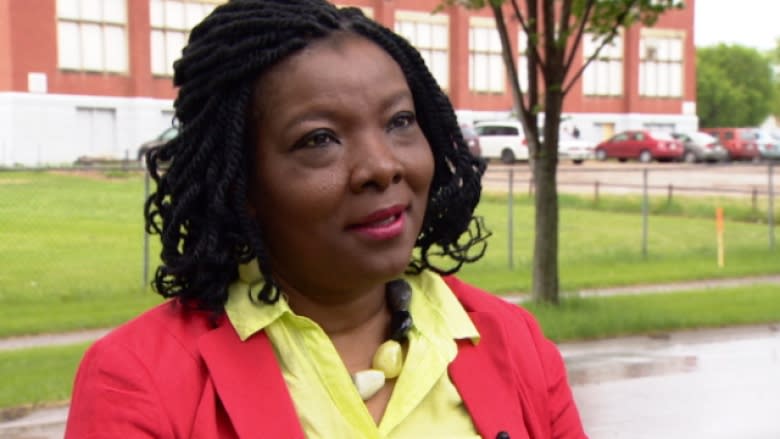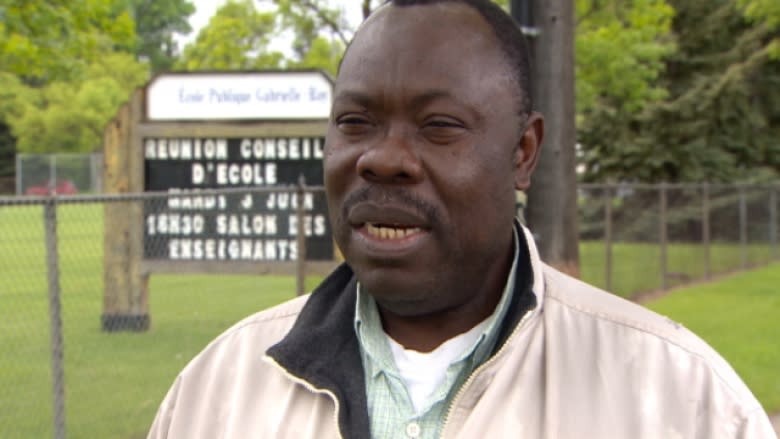Hundreds sign petition calling for more immigrant teachers
Hundreds of people have signed a petition urging Edmonton's francophone school board to hire more immigrant teachers.
The petition, signed by 500 people, says many families from Edmonton's growing immigrant francophone community have enrolled their children in schools managed by the Greater North Central Francophone Education School Board.
"Unfortunately with 20 years of existence, we see that the [board] has put in little effort in ensuring its personnel reflect the diversity of its student population," the petition reads.
Parent Victor Moke-Ngala, who helped launch the petition with a group of parents of African descent, says no teachers at his daughter's school, ÉcoleSainte-Jeanne-d'Arc, share her ethnic background. He says his daughter told him she would not feel comfortable with a black teacher because she has never had one.
"So in her mind, it's like a teacher should only be a white person," he said.
"Diversity is among students but diversity is not among teachers. I would like to have my child be in a school where she can see teachers from her culture... So those teachers can be seen as role models for them and also show them that opportunities are for everyone."
Some parents say a diverse staff is important for all students, not just those of immigrant background, to prepare them for the real world after they graduate.
"The world will be very diverse and it is essential that they be exposed to that diversity, not only among fellow students but also personnel," said Moke-Ngala.
Parent Jeanne Lehman says the teaching staff needs to better reflect Canada's multiculturalism. There are no teachers of African heritage teaching at her son's school, ÉcoleJoseph-Moreau, she says.
Education is not just about academics but also a place to promote unity, inclusion and understanding, she said.
"For children to have teachers of diverse origin helps them to be good citizens."
Diverse staff for diverse population
According to the most recent statistics, the Edmonton region's francophone population is nearly 24,000, increasingly made up of immigrants. In the last census report, immigrants made up 20 per cent of the francophone community.
Last year alone, the city's centre for francophone newcomers registered 600 people. Half way through 2014, it had already surpassed that number. About 80 per cent are from sub-Saharan Africa, says Centre D'Accueil et D'Établissement director George Bahaya.
One academic points out that as part of colonial expansion white Europeans became regarded as the dominant settler group. As the newcomer populations grows, there is a reluctance to address issues of race because we are not willing to talk about it, says Jennifer Kelly, professor and chair at the University of Alberta's department of educational policy studies.
"We like to see ourselves as nice people and nice people don't recognize that there may be elements of race involved in the ways in which we've organized our lives based on our past experiences," Kelly said.
She says it's important for all students to see newcomers in positions of authority to counter widespread negative stereotypes in the media.
Kelly sees the changing demographics as an opportunity for administrators in the entire Edmonton school system.
She urged school boards to "take up the challenge and see how we can form more inclusive schools... that would go alongside the remaking of Edmonton as a vibrant cultural city."
The Greater North Central Francophone Education School Board declined CBC's requests for comment on the petition.
But the board has plans to form a committee on cultural integration this week.



